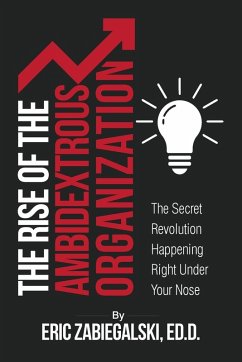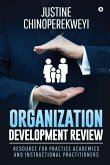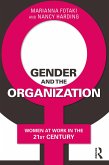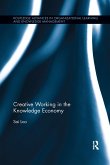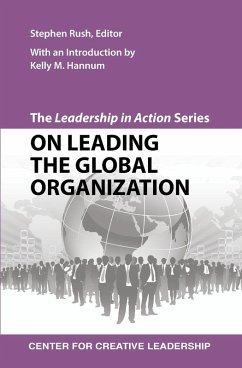Research into formerly high performing organizations has consistently found that organizational exploitation drives out exploration. What does that mean? It's simple: As organizations exploit the marketplace by doing what they do best for profit and market share, they consequently stop exploring and looking for new ideas; they stop learning in critical ways that could guarantee future success. The solution is the practice of organizational ambidexterity, the ability to be simultaneously exploitative and explorative in the marketplace, managing both elements in a rhythmic balance and dance that promote both short- and long-term performance and success. Mastering ambidexterity is not easy and takes a certain amount of trust and grit; however, for the companies that adopt this model and routinely execute it, it is a combination that works. This book has been designed to take you on a journey, entertain you with stories, educate and stretch your current knowledge and thinking, and encourage you to reflect and question the world in which you live. It begins by reviewing the elements of the ambidextrous organization: culture, leadership, learning, and structure. It then addresses the environment of complexity, with discussions of the science of complexity, equilibrium, symmetry, structure, emergence, chaos, and governance. The third part presents strategies to help you cultivate an ambidextrous mind by overcoming some hurdles and being authentic. The book closes by describing how to arrive at organizational ambidexterity. About the author: Eric Zabiegalski is an external organizational development consultant specializing in strategy, culture, and leadership development with an emphasis on innovation and creativity. He has worked in the private and public sectors, with for-profit and not-for-profit organizations, locally and nationally. In addition to his work as a consultant, Dr. Zabiegalski is a member of the World Institute of Action Learning Board of Directors and a professor at Webster University. He has a doctoral degree in human and organizational learning from The George Washington University. ADVANCED PRAISE "Dr. Zabiegalski is the rare scholar-practitioner who has the ability to incorporate cutting-edge theories such as complexity, psychology, philosophy, management science, action learning, and economics with his many years as a successful leader and consultant. This book captures his wisdom and common sense, which results in pages of great ideas and even greater recommendations on how the reader can build an ambidextrous learning organization. It's a wonderful book, and I highly recommend it to anyone who is seeking to build an organization that can lead and learn in a turbulent world." -Michael J. Marquardt, Professor Emeritus, George Washington University, and Co-founder, World Institute for Action Learning "Every once in a while, a book comes around that informs and unites us. This is such a book. The author turns what might seem an esoteric business topic into a highly relatable search for balance and inclusion that benefits us all. Dr. Zabiegalski has written what should be required reading for every leader, entrepreneur, educator, and manager." -Timothy Lucente, Solutions Consultant "At the leading edge of a global phenomenon, Dr. Zabiegalski is a pathfinder on the subject of organizational ambidexterity. Dr. Eric's book places us squarely at the intersection of thought and practice by offering pragmatic approaches to understand, thrive, and fuel meaningful paradigm shifts in this dynamically connected complex world." -Thomas Kleiner, Ph.D., Executive in Residence, Webster University
Hinweis: Dieser Artikel kann nur an eine deutsche Lieferadresse ausgeliefert werden.
Hinweis: Dieser Artikel kann nur an eine deutsche Lieferadresse ausgeliefert werden.

